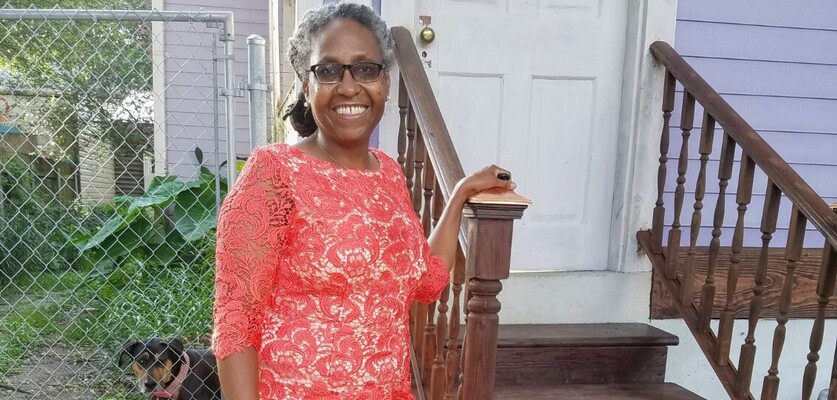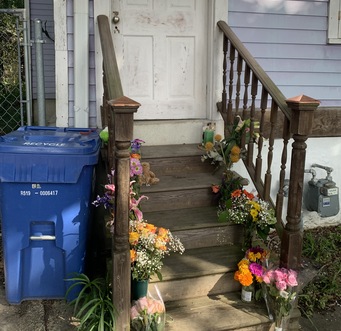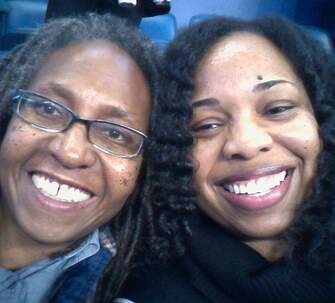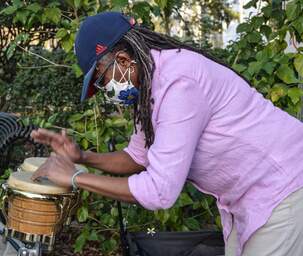
A platform that encourages healthy conversation, spiritual support, growth and fellowship

NOLACatholic Parenting Podcast
A natural progression of our weekly column in the Clarion Herald and blog

The best in Catholic news and inspiration - wherever you are!
Niece: Murdered Xavier graduate was a relentless giver
-

By Peter Finney Jr.
Clarion HeraldPortia Pollock came to New Orleans from Atlanta in the late 1970s to study biology at Xavier University of Louisiana.
When she left Xavier with a bachelor’s degree and returned to Atlanta to pursue a degree in physical therapy at Georgia State University, she secretly harbored a dream to return to New Orleans, the city that had nourished her love for music and had captured her heart.
Pollock did come back to New Orleans after getting her physical therapy degree, and for the last 31 years, in addition to traveling across southeast Louisiana to care for patients, she would play with the Congo Square drummers every Sunday.
Then, at 7:30 a.m. on June 8, as the 60-year-old physical therapist walked out of her home in the 1500 block of North Dorgenois St. in New Orleans to drive to work, police said a carjacker fatally stabbed her and drove off in her vehicle. Police announced June 11 that they had arrested Bryan Andry, 47, on a charge of second-degree murder for the stabbing.
 In an abyss of the city’s unthinkable and senseless violence, Pollock’s murder stunned a community reeling from escalating crime and bloodshed.
In an abyss of the city’s unthinkable and senseless violence, Pollock’s murder stunned a community reeling from escalating crime and bloodshed.“She was a bright light,” said Fatima La’Juan Muse, a family friend who grew so close to Pollock that she considered her an adopted aunt. “This is a personal loss, but this is also a loss for the city. I find myself saying, why? Here she was, a 60-year-old woman on her way to work to help people. She never bothered a soul. I can’t make sense of it.”
“What concerns me is what we can do to stop the next one from happening,” said Pollock’s next-door neighbor Sam Wershow, who a day after the murder was watching over Pollock’s dog, named Cymbal because of her owner’s musical passions, in his front yard. “There’s nothing we can do for Portia.”
 Muse grew up in the Irish Channel, but when she decided to enroll at Dillard University – just a few minutes from Pollock’s house – Pollock welcomed her to stay with her. Pollock never married and had no children.
Muse grew up in the Irish Channel, but when she decided to enroll at Dillard University – just a few minutes from Pollock’s house – Pollock welcomed her to stay with her. Pollock never married and had no children.“I was her niece ‘by love,’” Muse said, laughing. “She was just a really close friend of my family. I mean, she had so many titles for me. She would tell people that I’m her niece, I’m her goddaughter, I’m the daughter she never had. She was my ‘finishing’ mother. When I came to live with her, it was like a cross between having a little freedom but also someone who said, ‘Now, let’s get it together. You need some boundaries.’”
Muse said Pollock remained close to her Alpha Kappa Alpha sorority sisters from Xavier, and “faith was important to her.”
Muse said she always asked her aunt why she would travel 100 miles to care for a physical therapy client when she could take care of people closer to home.
“She would tell me, ‘Well, the agency doesn’t have anybody who wants to go that far,’” Muse said. “That’s the essence of who she was.”
 As a Congo Square drummer, she played regularly with a drumming group called the Proud Marys and later the Mary Exs, and she performed twice at Jazz Fest. She had just started teaching drumming to children at a community center.
As a Congo Square drummer, she played regularly with a drumming group called the Proud Marys and later the Mary Exs, and she performed twice at Jazz Fest. She had just started teaching drumming to children at a community center.Pollock’s murder occured about 24 hours before Muse was scheduled to make a Zoom presentation for her doctoral dissertation in medical family therapy at Saint Louis University.
“I’m operating on fumes and trying to compartmentalize,” Muse said.
Eight hours later, Muse reported: “I’m proud to report that I am officially a Doctoral Candidate Muse! It’s been a rough 24 hours, but amidst the mourning I have a reason to rejoice.”
So where does the city go from here?
“It starts with accountability from everyone, not just the city leaders and legislators but also the citizens,” Muse said. “It felt so good to hear people showing up and telling us they had video footage and asking what they could do to help. This city needs to have a community mindset, because those people who commit these senseless murders are not a part of the community. We need to come together and either run them out of here or force the people in power to draft some laws that prevent things like this from happening.”
Her aunt was exactly the kind of woman who would fight for the community.
“She was the best kind of woman,” Muse said. “Everyone’s saying the same thing – she was so kind, so giving. She was a person who cared about people. She gave so much more than she took. She didn’t expect anything, but she gave everything. It didn’t matter who you were.”




